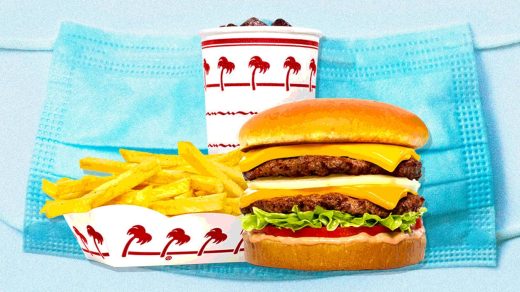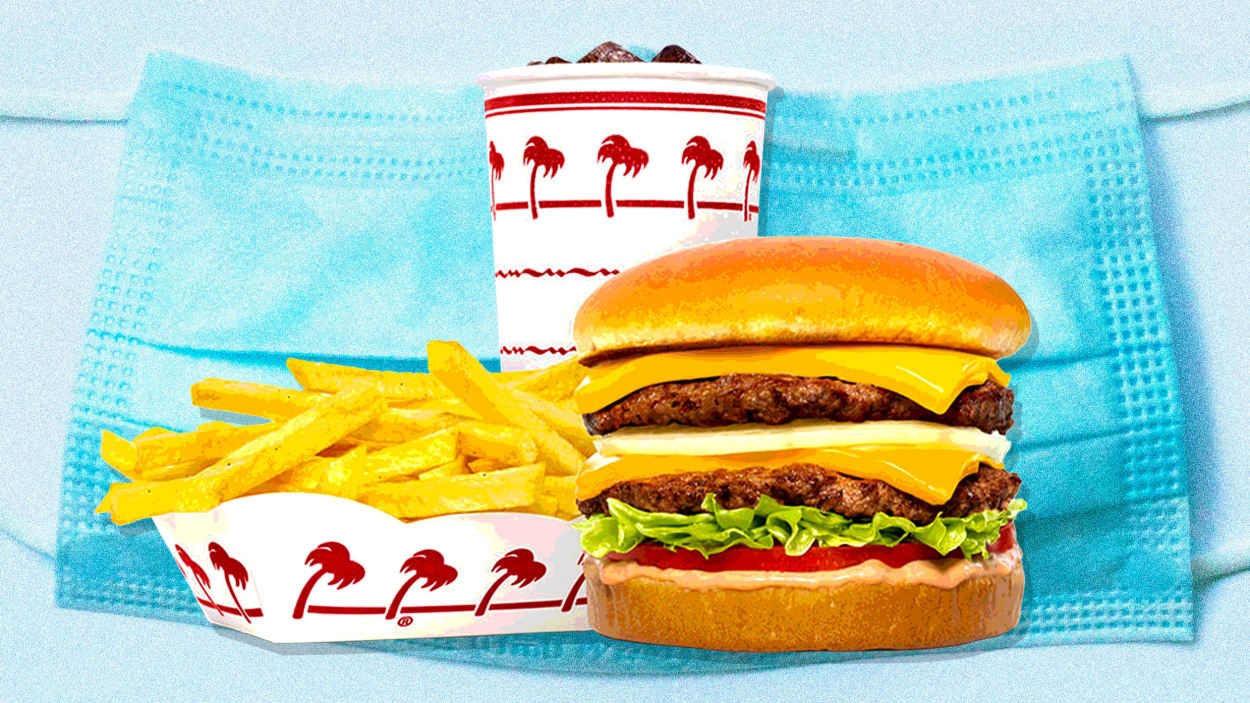The mask ban isn’t In-N-Out Burger’s first time flouting public health since COVID
In-N-Out Burger—which belongs to an industry where hygiene and safety are key—has chosen an interesting hill to die on this week, confirming that it has banned masks at stores in five states, unless workers can submit a medical note stating that they need one.
To quote In-N-Out directly, “no masks shall be worn in the Store,” the apparent reason being to “show our Associates’ smiles and other facial features while considering the health and well-being of all individuals.” Screenshots of the internal memo—which was emailed on July 14—quickly migrated to Reddit and Twitter, where critics have not wasted words.
The ban begins August 14 at stores across Texas, Nevada, Colorado, Arizona, and Utah. Workers who feel that they still need a face covering on the job must get a “valid medical note” from a doctor confirming that there is some “specific medical condition or health concern that requires them to wear a mask.”
Notably, this new rule doesn’t apply in either Oregon or California—In-N-Out’s home state, where 70% of its restaurants are located—because it cannot apply there. Laws in both states prohibit employers from preventing their employees from wearing masks. In-N-Out workers in the other states who do get permission to use one will have to wear a company-issued N95 mask; a different type is okay only with another “valid medical note exempting the Associate from the N95 mask requirement.”
Employees who test In-N-Out’s ban are warned they could face disciplinary action “up to and including termination of employment, based on the severity and frequency of the violation.” In what feels like a major asterisk, the memo clarifies that employees who “wear masks or protective gear as part of their job duties” will continue to be required to do so. (The examples given are “patty room Associates, lab technicians, painters, etc.”)
“Our goal,” the memo concludes, is to “balance two things that In-N-Out is known for—exceptional customer service and unmatched standards for health, safety, and quality,” suggesting In-N-Out may see them as being in conflict.
Given the geography (in states where fights over mask mandates were feverish) and timing (relatively soon after President Biden declared the COVID public health emergency over), In-N-Out’s ban may be a response to a certain customer demographic that is triggered by seeing masked-up employees—even if three years of PPE have evolved masks from visually jarring spectacles to common sights at airports, subway stations, and restaurants. Critics of the burger chain’s draconian-sounding policy have compared it to making drivers carry a prescription to buckle their seat belt.
A Change.org petition demanding In-N-Out reverse its policy has gathered 1,500 signatures since July 14. “The PPE ban affects various individuals, including those practicing air hygiene, vulnerable to COVID-19, at risk of Long Covid, valuing privacy about their health status, financially unable to obtain a medical note, living with vulnerable individuals, or caring for those affected by Long Covid,” it reads, adding: “We implore In-N-Out to reconsider and prioritize employee and customer health. Let us create an inclusive, safe environment where health and livelihood are not in conflict.”
In-N-Out didn’t immediately respond to questions about criticism of its mask policy change.
However, this also isn’t the chain’s first time courting controversy for a COVID public health policy. Previously, it refused to follow the guidance of cities while they were still in the crisis’s throes. This included not checking the vaccination status of San Francisco customers, as required by the city at the time (in 2021), leading authorities to shutter In-N-Out’s operations.
“We refuse to become the vaccination police for any government,” a company rep told media at the time. “It is unreasonable, invasive, and unsafe to force our restaurant associates to segregate customers into those who may be served and those who may not, whether based on the documentation they carry, or any other reason.”
In-N-Out’s “my body, my choice” policy seems to have evolved in the past two years, now holding that it is reasonable, acceptable, and safe to force employees to approach all customers without protective face gear.
(15)



